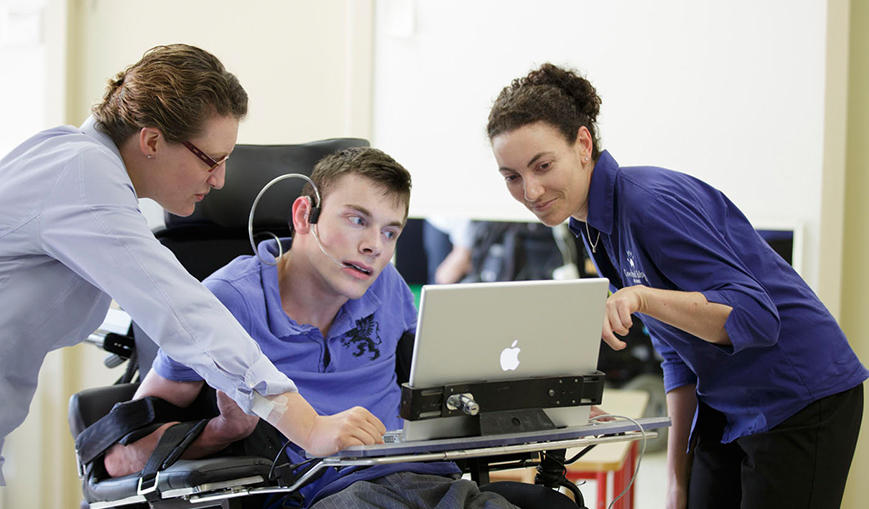Australia has taken a significant step towards creating an all-inclusive society by introducing groundbreaking amendments to the Disability Royal Commissions Act. These amendments come in response to the findings of the Royal Commission into violence, abuse, neglect, and exploitation of people with disabilities, which concluded its work after four-and-a-half years of comprehensive investigations. The final report of the commission, released on Friday, contains 222 recommendations that aim to shape a more equitable and just society for individuals with disabilities. This article delves into the key amendments, their implications, and the hopes of the people for their successful implementation.

Australia’s commitment to creating an all-inclusive society forms the foundation of the recent amendments to the Disability Royal Commissions Act. The nation aspires to be a place where every individual, regardless of their abilities or disabilities, can participate fully in all aspects of life. Recognizing that achieving this vision requires transformative changes in policy and practice, the Australian government embarked on a journey to address the systemic issues faced by people with disabilities.
The final report of the Royal Commission into violence, abuse, neglect, and exploitation of people with disabilities represents a milestone in Australia’s pursuit of a more inclusive society. This comprehensive investigation spanned four-and-a-half years and involved extensive hearings, reports, submissions, and the powerful testimony of individuals with disabilities and their loved ones. The commission’s exhaustive work aimed to uncover the systemic injustices faced by this community and recommend concrete measures for rectifying them.
One of the most significant recommendations put forth by the commission is the enactment of a Disability Rights Act that reflects and embodies the principles outlined in the UN Convention on the Rights of Persons with Disabilities. This proposed legislation holds the potential to be a transformative force in protecting and advancing the rights of individuals with disabilities in Australia. The Act would provide a legal framework that explicitly safeguards these rights and offers recourse for those who face discrimination, abuse, or neglect.
Amanda Rishworth, the Social Services Minister, expressed the government’s resounding support for the commission’s vision of a more inclusive society. She stated that the government is dedicated to ensuring that violence, abuse, neglect, and exploitation of people with disabilities are deemed entirely unacceptable in Australian society. This commitment from the government is essential for the successful implementation of the commission’s recommendations.
The commission’s recommendations encompass a broad spectrum of areas that affect the lives of individuals with disabilities. These include housing, health, education, employment, criminal justice, and disability services. By addressing these facets comprehensively, the amendments aim to dismantle systemic barriers that have perpetuated inequality and discrimination.
The introduction of these groundbreaking amendments has ignited hope among people with disabilities, their families, and advocates. There is a shared aspiration that the commission’s recommendations will be effectively implemented to create tangible improvements in the lives of individuals with disabilities.

The journey toward an all-inclusive society in Australia is not without its challenges, but the commitment to progress remains steadfast.
Resource Allocation: A significant challenge lies in allocating adequate resources to support the implementation of the commission’s recommendations. Ensuring that funding and staffing are sufficient is vital for translating these recommendations into tangible actions.
Cultural Shift: Achieving a cultural shift in attitudes towards disability and inclusion is a long-term endeavor. It necessitates ongoing educational efforts to combat stereotypes, dispel myths, and promote a more inclusive mindset in society.
Intersectionality: Recognizing that disability intersects with other aspects of identity and discrimination, such as race, gender, and sexuality, is essential. Future amendments and actions must consider these intersections to ensure that no one is left behind.
Continuous Adaptation: As society evolves, so do the needs and challenges faced by individuals with disabilities. The Disability Royal Commission Act must remain flexible and adaptive to address emerging issues effectively.
Australia’s commitment to creating an all-inclusive society for individuals with disabilities has reached a pivotal moment with the introduction of groundbreaking amendments to the Disability Royal Commissions Act. These amendments, stemming from the findings of the Royal Commission into violence, abuse, neglect, and exploitation of people with disabilities, hold the promise of transformative change. With the government’s support and the collective dedication of advocates and the public, there is hope that these amendments will lead to a more equitable, just, and inclusive society for all Australians, regardless of their abilities or disabilities. The road to inclusion is challenging, but it is a journey that Australia is determined to undertake for the benefit of its entire community.
The government’s unwavering support for the commission’s vision of a more inclusive society is a heartening development. The commitment to eradicating violence, abuse, neglect, and exploitation of people with disabilities sends a clear message that these injustices will not be tolerated. The comprehensive coverage of recommendations, spanning housing, health, education, employment, criminal justice, and disability services, reflects the commission’s dedication to addressing systemic issues holistically.
As these amendments are implemented, there is a collective hope among individuals with disabilities, their families, and advocates that they will bring about tangible improvements in the lives of those they are designed to protect. This is a momentous chapter in Australia’s journey towards inclusivity, a journey that is not without challenges but remains guided by the principles of justice, equality, and respect for all.



